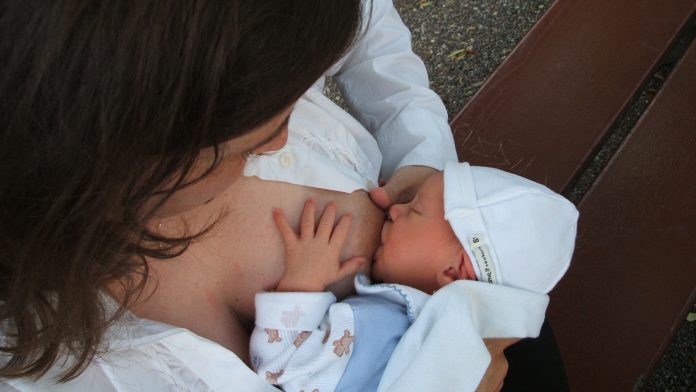
This week, WHO and UNICEF have issued a new ten-step guide to boost support for breastfeeding in health facilities that provide maternity and newborn services.
The new guidance, ‘Ten Steps to Successful Breastfeeding’, encourages new mothers to breastfeed and informs health workers how best to support breastfeeding in health facilities.
All babies would benefit from being breastfed for the first two years, as it would save the lives of more than 820,000 children under age five annually.
Breastfeeding’s vital role
Breastfeeding is vital to the lifelong health of a child, as well as reducing costs for health facilities, families and governments. Within the first hour of birth, breastfeeding protects newborn babies from infections and saves lives.
There is a greater risk of death due to diarrhoea and other infections in infants who are only partially breastfed or not breastfed at all. It is also known to improve IQ and reduce the risk of breast cancer in the mother.
UNICEF executive director, Henrietta H. Fore, said: “Breastfeeding saves lives. Its benefits help keep babies healthy in their first days and last will into adulthood.
“But breastfeeding requires support, encouragement and guidance. With these basic steps, implemented properly, we can significantly improve breastfeeding rates around the world and give children the best possible start in life.”
What does the new guidance entail?
The guidance describes practical steps countries should take to protect, promote and support breastfeeding in facilities providing maternity and newborn services.
An immediate health system platform is provided to help mothers imitate breastfeeding within the first hour and breastfeed exclusively for six months.
It describes how hospitals should have a written breastfeeding policy in place, staff competencies, and antenatal and post-birth care, including breastfeeding support for mothers.
It also recommends:
- Limited use of breastmilk substitutes;
- Rooming-in;
- Responsive feeding;
- Educating parents on the use of bottles and pacifiers; and
- Support when mothers and babies are discharged from hospital.
Dr Tedros Adhanom Ghebreyesus, WHO director general, added: “Hospitals are not there just to cure the ill. They are there to promote life and ensure people can thrive and live their lives to their full potential.
“As part of every country’s drive to achieve universal health coverage, there is no better or more crucial place to start than by ensuring the ‘Ten Steps to Successful Breastfeeding’ are the standard for care of mothers and their babies.”
Source: WHO

























